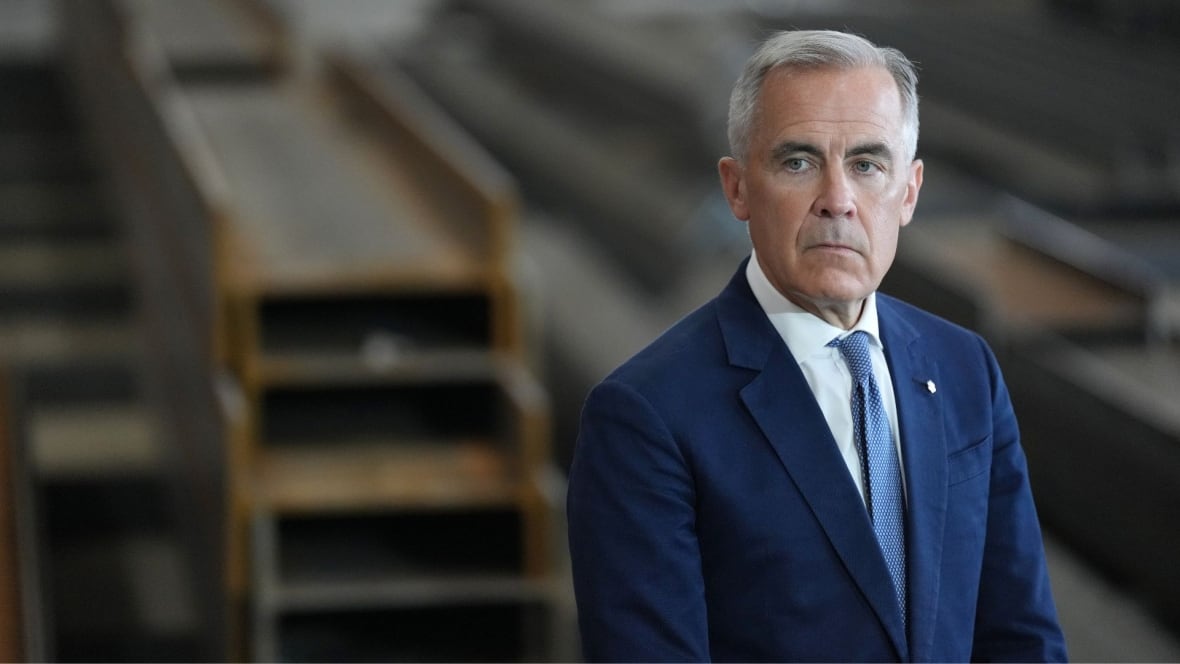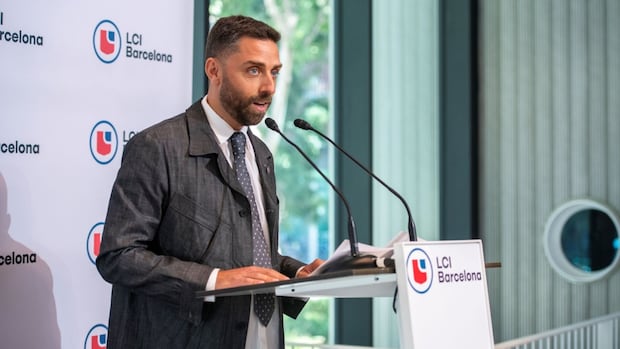[published_date]
Prime Minister Mark Carney promised to further crack down on the amount of cheap, foreign steel entering the Canadian market, as the industry continues to be clobbered by U.S. President Donald Trump’s tariffs.
Carney made the announcement in Hamilton on Wednesday morning, eliciting a sigh of relief from an industry that has already seen layoffs and lower production levels in the weeks since the U.S. imposed steep import taxes.
Last month, the government announced changes to the tariff quota system, which allows a set level of product to enter Canada at a lower tariff rate, by limiting steel imports from countries that don’t have free trade agreements to 2024 import levels.
But that quota was criticized by the industry as still being too high.
Prime Minister Mark Carney, speaking Wednesday in Hamilton at an event about steel, declined to offer specifics around negotiations with the U.S., saying ‘we’ll see,’ when pressed on whether Canada would impose more tariffs.
On Wednesday the prime minister said by the end of the month, the government will bring in a new quota system that he argues “will ensure Canadian steel producers have a bigger share of the Canadian market, create more resilient supply chains and unlock new private capital for Canadian production.”
Steel products from non-free trade agreement partners, which includes China and Turkey, will see the tariff rate quota level tighten to half of 2024 volumes. A 50 per cent tariff will be imposed on any imports beyond those levels, Carney said.
Ottawa is also moving to clamp down on steel products from non-U.S. partners with free trade agreements. The federal government said it will introduce a tariff rate quota level at 100 per cent of 2024 volumes and apply the same 50 per cent tariff above those levels.

Carney said Canada will also implement additional tariffs of 25 per cent on imports from all non-U.S. countries containing steel melted and poured in China.
Existing arrangements with the Canada-U.S.-Mexico Agreement (CUSMA) will remain the same, he said.
Carney announced no changes to current trade measures with the U.S.
Steel association happy with changes
Catherine Cobden, president and CEO of the Canadian Steel Producers Association, said she listened to the announcement “with relief.”
“It won’t be perfect help, but it’s certainly a much better place than where we were yesterday,” she said of the quota changes. “It’s all in the right direction.”
She said the new caps will help Canadian steelmakers “recapture domestic market.”
“I can’t sit here and tell you that it will completely offset the loss from the United States, but it will help us,” she said.
The industry has been hobbled after Trump first imposed 25 per cent tariffs on the Canadian steel and aluminum sectors in March, citing national security concerns. He hiked the tariffs to 50 per cent in June.
Cobden said there was a 30 per cent drop in steel production in May. Her group is bracing for a further plummet once the numbers reflecting the 50 per cent tariff are available.
Carney also announced further investments in Canadian steel companies, including $70 million to provide training and income support for up to 10,000 affected steel workers and $1 billion through the Strategic Innovation Fund (SIF) to help steel companies advance projects.

The prime minister said Canada’s new government will prioritize Canadian steel to build projects including “millions of homes, ports, bridges, energy infrastructure and our security and defence capabilities.”
To do that, Carney said changes are coming to the procurement process requiring companies contracting with the federal government to source Canadian steel for government contracts.
Carney says deal without some tariffs is unlikely
Carney’s announcement comes a day after he suggested Canadians may have to accept some tariffs as part of a new agreement with the United States
Speaking to reporters on Parliament Hill on Tuesday, Carney — who campaigned during the spring election on securing a deal with Trump — said in French that all of Trump’s trade agreements to this point have included some tariffs.
The Liberal leader said “there’s not a lot of evidence right now” that the U.S. is willing to cut a deal without some tariffs included. Trump’s trade arrangement with the U.K., for example, includes a 10 per cent baseline tariff.
“We are really not interested in a baseline tariff,” said Cobden.
Prime Minister Mark Carney tried to temper expectations about a Canada-U.S. trade deal, telling reporters all of President Donald Trump’s trade agreements have included tariffs.
Carney did not say how the government will respond if they remain in place after the Aug. 1 deadline.
Bloc Québécois Leader Yves-François Blanchet took aim, accusing Carney of backpedalling.
“He has renounced and made compromises on many things so far without achieving anything in the delays he himself has created and announced,” he told reporters on Parliament Hill Wednesday.
“He should never have said he will restore the full free trade agreement; he should not have said that because now he has to admit his own failure.”
Bloc Québécois Leader Yves-François Blanchet, speaking a day after Prime Minister Mark Carney said a tariff-free deal with U.S. is unlikely, said he wants to see the lowest possible tariffs and ‘real’ negotiations for ‘all sectors of our entangled economies.’
Conservative Leader Pierre Poilievre said Tuesday Carney’s tariff remarks were “another unilateral concession from a man who said he would never back down to the U.S. president.”
Poilievre was also critical of Carney’s decision late last month to scrap the digital services tax (DST) — a move Trump demanded to continue trade negotiations.
The Conservative accused Carney of putting his “elbows down” by cancelling the tax targeting large technology firms “at the 11th hour.”





